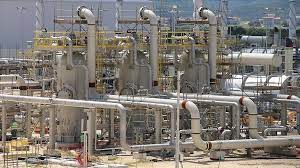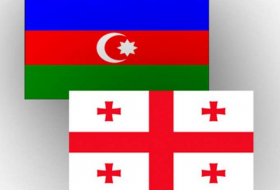Over the last month, the diplomatic traffic between Azerbaijan and the Eastern European countries has intensified in a remarkable way. The mutual high-level visits between Albania and Azerbaijan, as well as between Serbia and Azerbaijan in a short period of time over the last few months were a sign of the sides’ interest in bilateral cooperation in various fields, particularly in the field of energy. Azerbaijan is also involved in projects with the countries of the region within multilateral formats together with the European Union (EU). In this context, two major agreements signed this year provide a good basis for this cooperation both in the imports of natural gas and importantly green energy.
First, the new Memorandum of Understanding on a Strategic Partnership in the Field of Energy between the EU and Azerbaijan that was signed on July 18 in Baku to increase the imports of Azerbaijani natural gas to Europe opened new horizons for the relations between the sides. According to this MoU, Azerbaijan is expected to increase its gas exports to the EU by at least 20 billion cubic meters (bcm) annually by 2027. Secondly, the latest deal “Agreement on strategic partnership on green energy” signed on December 17 in Bucharest opened a new chapter in the EU-Azerbaijan relations by envisaging the export of Azerbaijani electricity to the EU via a subsea cable under the Black Sea. This cable will link Azerbaijan with Hungary via Georgia and Romania and create a scheme that will benefit also Ukraine and Moldova – the two regional countries that face serious challenges in the energy field due to the present situation with Russia.
These developments allow Azerbaijan to significantly increase its contribution to the energy security of Europe, particularly the Eastern flank of the continent. Today Azerbaijan is negotiating with its Eastern European partners the plans to deliver Azerbaijani gas to the region in more quantities. For example, towards this purpose, Bulgarian Prime Minister Kiril Petkov paid a visit to Baku on July 21, three days after the signing of the EU-Azerbaijani gas deal. In early July 2022, following the opening ceremony for the Gas Interconnector Greece-Bulgaria (IGB), Azerbaijani Energy Minister Parviz Shahbazov declared that, "gas exports to Bulgaria in January–June 2022 amounted to 160 mcm [million cubic meters], and it is planned to increase that to 600 mcm by the end of the year. Azerbaijan has been exporting 2.6 mcm of natural gas to Bulgaria every day since July 1.” The IGB connects Bulgaria with the Southern Gas Corridor.
Serbia, which is fully dependent on Russian gas, is another regional country that is currently in talks with Azerbaijan and hopes to import Azerbaijani gas by 2023. The mutual visits by the Presidents of Azerbaijan and Serbia on November 23 and December 21 were primarily focused on this perspective. The sides plan to deliver Azerbaijani gas to this country through the interconnectors to be built together with Bulgaria and North Macedonia.
Azerbaijan plans also to act as an investor in the development of the gas network of the region. Azerbaijan declared its readiness to invest in the development of Albania’s gas transmission system in the course of the visit of Azerbaijani President Ilham Aliyev to Albania on November 15. “A gas network has still not been created in Albania. Azerbaijan could participate in this area as an investor, and we’re ready for that,” President Aliyev told Albanian President Bajram Begaj.
Last but not least, Baku is also involved in the negotiations about the export of the Turkmen gas to Europe via the Southern Gas Corridor. The first trilateral summit of the presidents of Azerbaijan, Turkiye and Turkmenistan on December 13 in Turkmen capital Ashgabat discussed the prospect of transportation of the Turkmen gas to the European market. There are proposals at the expert level to establish LNG terminals at the shore of the Caspian Sea and carry the natural gas across the sea via ships. This would allow the interested countries to overcome the challenges posed by other littoral states that has long averted the establishment of a trans-Caspian pipeline. The expansion of the Southern Gas Corridor or the establishment of a new route to realize a sufficient flow of natural gas over the region, as President Recep Tayyip Erdogan of Turkiye stated in Ashgabat, may also provide necessary infrastructure to link the Central Asia with Europe.
These developments in the relations between Azerbaijan and the Eastern European countries brings with it also geopolitical approximation between the sides. As President Aliyev stated following the signing of the electricity deal in Bucharest, Azerbaijan’s contribution to European energy security creates an important bridge between the EU and Azerbaijan. The bridge between the two shores of the Black Sea forms a larger security architecture which increase the resilience of the regional countries in the face of national security challenges they face.
Vasif Huseynov is Head of Department at the Baku-based Centre of Analysis of International Relations (AIR Centre).
More about: Azerbaijan Europe energy gas
















































